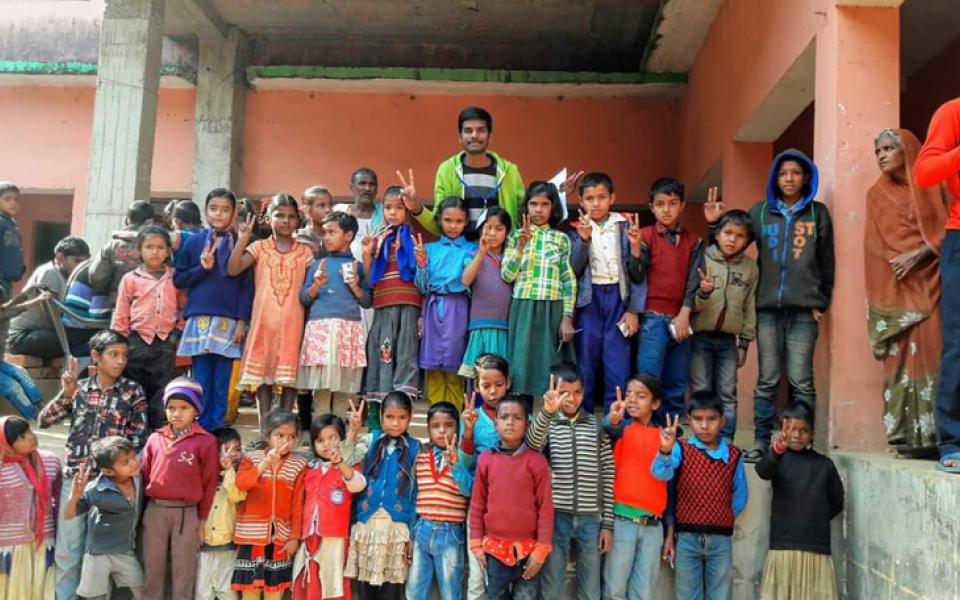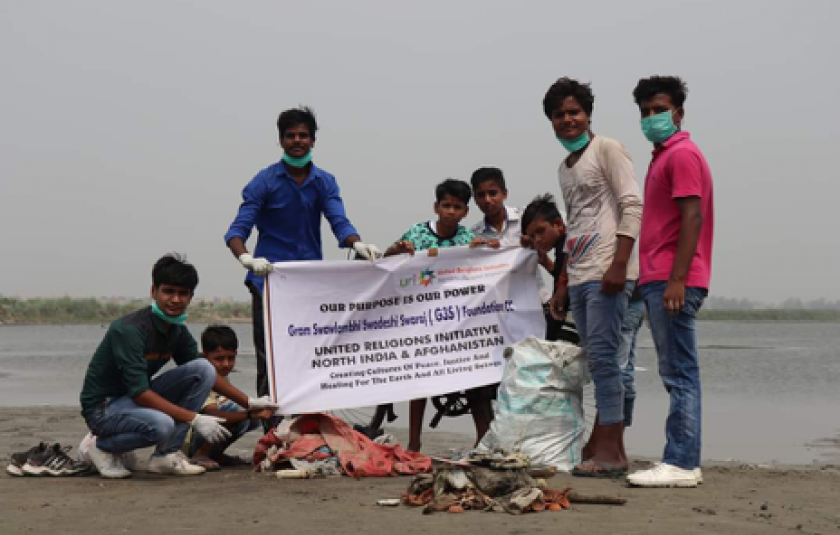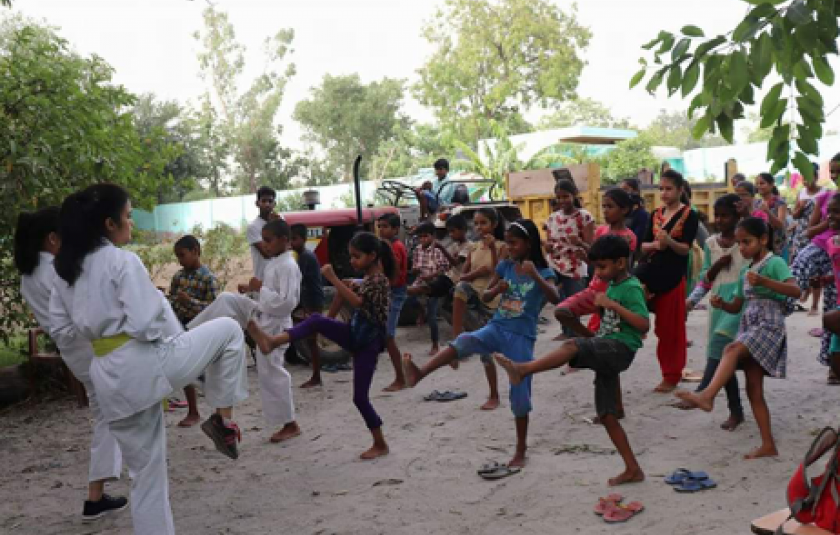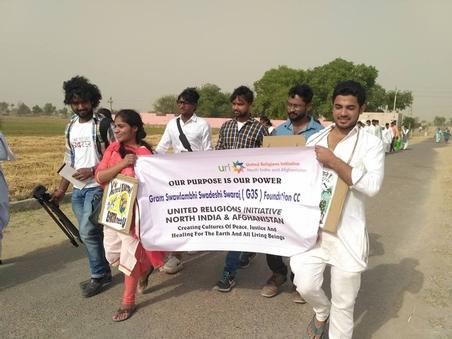Written by Atharva Mehendale, Community Project Manager, URI - North India & Afghanistan
‘Social inclusion and non-discrimination go a long way in promoting holistic development of the society’, says Mr. Pawan, co-founder - G3S (Gram Swawlambi Swadeshi Swaraj) Foundation, a group of committed and enthusiastic undergraduate and graduate students from University of Delhi. The group was established in the year 2016 in Narela-Alipur, Delhi. To promote this very objective, G3S has been tirelessly working on issues around primary education, child & women empowerment, healthcare and environmental sustainability. Social inclusion is the process of improving the terms on which individuals and groups take part in society—improving the ability, opportunity, and dignity of those disadvantaged on the basis of their identity. Reaching out to the fringes of the society to ensure that the economically and socially disadvantaged are guaranteed primary education, health services and a clean environment irrespective of their religious or social background is something that the group has laid emphasis on - thereby promoting inclusive growth.
Their endeavors started with a community school in a migrant slum in Narela in 2016. Children of migrants moving to urban areas like Delhi from other parts of the country usually have limited to no access to primary education and healthcare. They struggle to achieve the same level of educational success as their peers. Relocation causes discontinuity in education, which causes migrant students to progress slowly through school and drop out in most cases. Migrant children are also at a disadvantage because a majority of them live in extreme poverty and must work with their parents to support their families. Modest beginnings of the community youth center saw G3S volunteers bridging the gap between expectations and the real state of primary education available to these children. The youth center also laid emphasis on extra-curriculars, sports, etiquette, dressing, and general awareness with respect to sustainability, environment conservation and health & personal hygiene. G3S’ intervention also extended to parent awareness initiatives and establishing channels of communication between teachers in public schools, students and migrant parents. It wasn’t long before G3S spread out its wings to Muzaffarnagar in Bihar where it opened a computer-training center for women and children. This center also helped propagate the significance of e-payments and a cashless economy. With assistance from AIIMS and URI, G3S led an intervention for flood victims in the Purnia district of Bihar in 2018. With active support form Bihar’s education minister, G3S succeeded in setting up a mechanism to promote primary education and solve issues at the Panchayat level. Around the same time, G3S helped create a platform for children living in the neglected fringes of the national capital to showcase their talents. This was done in a makeshift center in Ibrahimpur in Outer Delhi.

The community youth centre
Over the years, the group has been involved in several projects aimed at environmental conservation. One significant project being the Yamuna clean-up project that the group took up with the help of a few volunteers, but without any government intervention. In March 2017, the group celebrated World Environment Day in Rajasthan, and organised sapling plantation and water conservation drives. In association with AIIMS, the group organized a free health-checkup camp in Alipur, Narela and Ibrahimpur in Delhi and Patna in Bihar for all age groups. It conducted several workshops to promote skill development and self-defense.
The group's association with URI as a cooperation circle has helped them reach out to a wider global audience and showcase their excellent projects. URI’s regional and national assemblies in Delhi and Varanasi respectively gave G3S a formal platform to reach out, collaborate and network with other like minded organisations and individuals.
This path to social inclusion and inclusive growth hasn’t however been without hurdles. Lack of funding, lack of social awareness around primary education, stigma associated with several health issues were few of the issues that the group had to tackle. Looking ahead, G3S aims to lay greater emphasis on its inclusive education project - in order to spread it to other parts of the country. This becomes necessary especially in the case of migrant children because relocation has negative social consequences caused due to isolation from peers, cultural differences and language barriers. Many migrant children live with a large number of extended family members in migrant camps or temporary housing facility. This crowding in a small, poorly lit and sparsely furnished space is not conducive environment to study and concentrate. The group believes in the chain-model of inclusive growth; whereby quality education provided at the grassroots level percolates through all levels of the society. A drive to bring about a sustainable change in the society has kept G3S Foundation alive and running.



